Planting 50 trees and installing water savers at Ain Shams University in cooperation with Rotary Heliopolis
As part of Ain Shams University's quest to turn green, Prof. Dr. Abdel Fattah Saoud, Vice President for Education and Student Affairs, Prof. Dr. Ghada Farouk, Acting Vice President for Community Service and Environmental Development, attended the activities of planting 50 trees on the second main campus and installing water savers in the university city for students in Abbasia, in cooperation with the Rotary of Heliopolis, in the presence of Prof. Dr. Tamer Rady, Advisor to the Vice President for Education and Student Affairs for Student Activities, Dr. Iman Jamal Al-Din, Dr. Sherine Dahrouj, Dr. Suzan Abdel Halim Abdullah, Prof. Dr. Mona Ahmed Salem, Dr. Mohamed Yahya, Dr. Ahmed Othman, Professor of Surgery, Ain Shams University, Dr. Magda Abdel Rahman, Professor of English Language Arts, Ain Shams, Dr. Hala Ahmedin, Chairman of the Committee of Trustees for Development Projects at Al-Ruwad Foundation in Cairo, Dr. Hani Fikry, Consultant Pediatrician and President of Heliopolis Golf Club, Dr. Mohamed Awad Taher, professor of cardiology at Ain Shams University and Prof. Sarah Mahdi is a PhD student at the Faculty of Economics and Political Science, Prof. Ibrahim Saeed, supervisor of university cities.
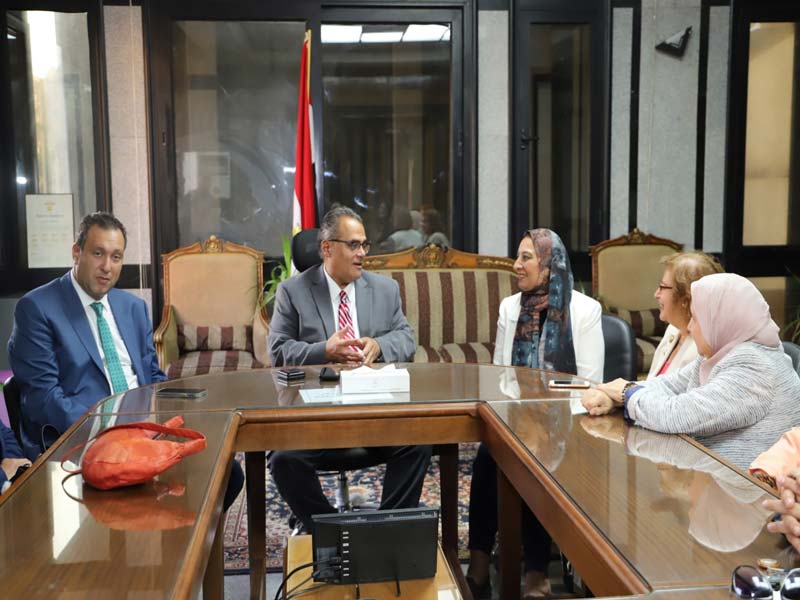 |
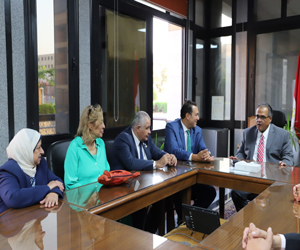 |
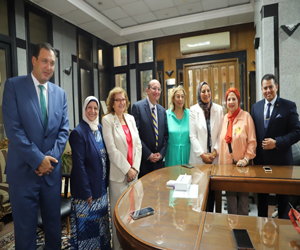 |
||
Where the attendees planted 50 trees of different sizes on the university’s second campus, and installed water-saving plots in the University City for students. This was followed by a tour of the university city for students, during which they praised the great boom witnessed by the university cities at Ain Shams University and the extent of sophistication in the level of services provided in the university city, which is represented in: Open spaces such as the restaurant, the city’s medical center that provides appropriate treatment for students’ illnesses and immediately transfers those whose condition is called to receive treatment in all Ain Shams University hospitals, in addition to paying great care of the quality of meals under the comprehensive supervision of specialized teams.
Prof. Dr. Abdel-Fattah Saoud explained that this cooperation comes within the framework of activating the participation of civil society institutions and Ain Shams University for a better environment. Health and recreational care for them, praising the societal role of Rotary Heliopolis and its remarkable activity.
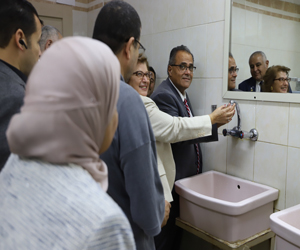 |
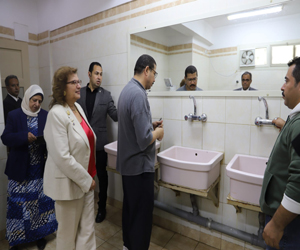 |
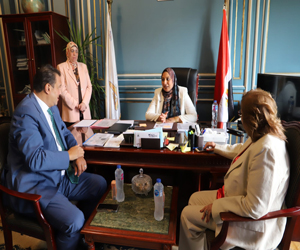 |
||
Prof. Dr. Ghada Farouk said that this cooperation is a first building block for the development of the second main campus, within the framework of what Ain Shams University is doing towards converting it into a green university, and its interest in planting and afforestation of spaces between buildings and providing an appropriate educational environment, noting that the main campus was previously developed and site coordination worked It is also being coordinated to develop the second campus to complete the Shams Be Green plan.
On her part, Dr. Iman Gamal El-Din indicated that the cooperation with Ain Shams University comes within an integrated project to transform the entire university into a green university, explaining that water savings have been installed in the city for male students and the city for female students that save up to 70% of water consumption, and this has already been done in the Faculties of Science and Commerce, In addition to planting the entire second campus with evergreen trees, she pointed out that work is underway to place containers for sorting and classifying solid waste from the source according to the international classification in all university faculties as well as university hostels for male and female students.
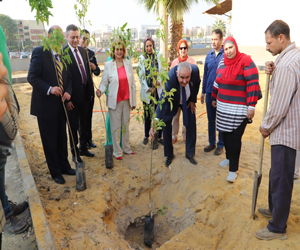 |
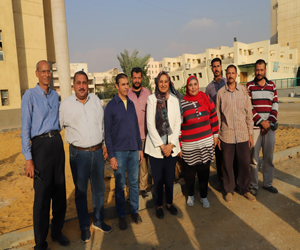 |
The Egyptian Society for the Preservation of Heritage and the Environment will also raise awareness for students about the importance of sorting and classifying waste from the source to make the most of it in terms of solid materials, paper or organic materials, as well as recycling water for reuse in irrigation and solar lighting, in line with the state policy and the sustainable development goals 2050 by diverting Most of the places to green places.


.svg)




